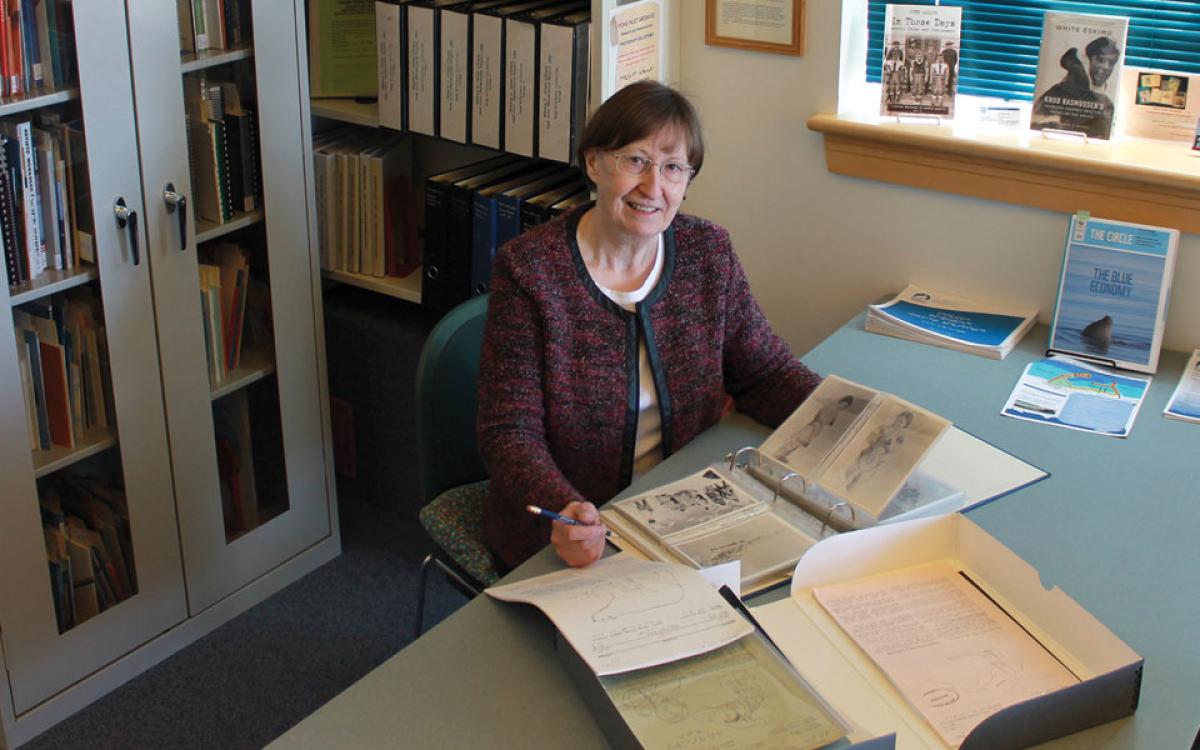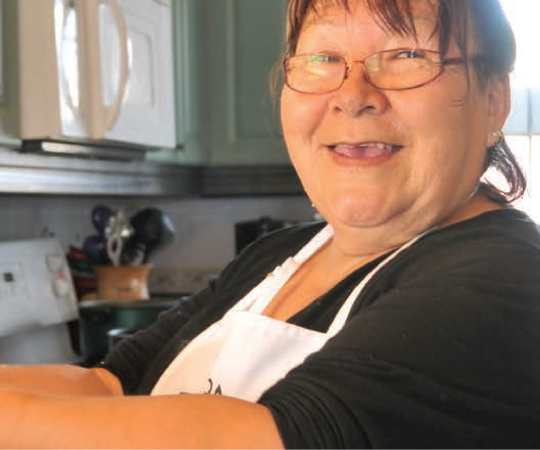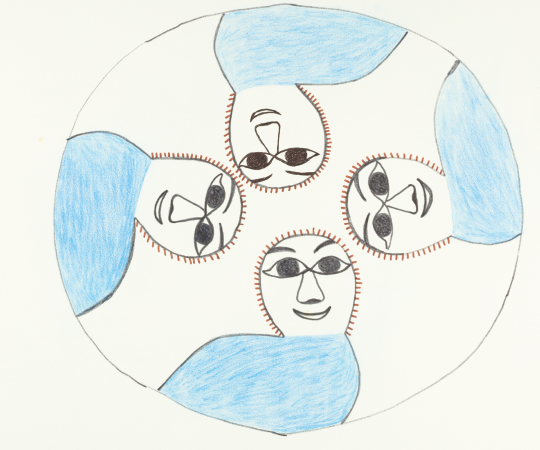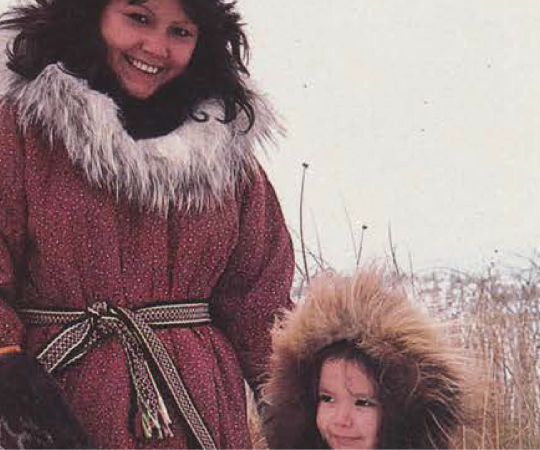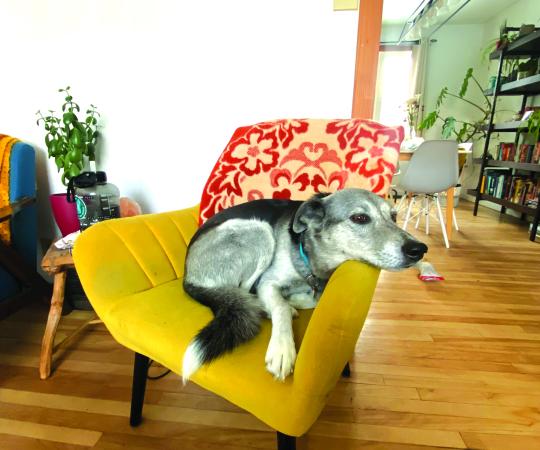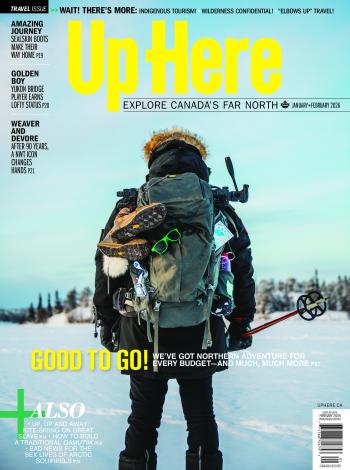Philippa Ootoowak never intended to build Canada's most remote archive of Arctic history. In fact, as she left her home in England on January 1, 1970, to come to Canada and work as a nurse, she didn't intend to stay longer than a year.
Instead, she bounced from Labrador to Coral Harbour, Rankin Inlet, and Naujaat before landing in Pond Inlet in March 1973. (“I wanted to see some mountains,” she says.) Then she yo-yoed from Pond Inlet to Yellowknife for one year before returning to the former, where she met her husband, married him, and eventually had four children. Today, she also has five grandchildren. Her planned year in Canada has stretched to 47 years, and counting.
In 1989, with her nursing days behind her and her children all in school, Ootoowak started looking for part-time work. Pond Inlet’s modest public library was hiring, a job that initially only required 10 hours a week. “That suited me fine to start with,” she says. The first small cruise ships were starting to trickle into Eclipse Sound back then, and as the community’s librarian, she found herself answering questions about local history from both residents and visitors. That piqued her curiosity, and she started finding room in the library’s budget to acquire more books about the North.
When a private collector moved away from Pond Inlet, putting their collection of 600 Northern books up for sale, Ootoowak and the library were able to fundraise and purchase the whole lot. Suddenly, a unique public resource was growing on the northern shore of Baffin Island. Ootoowak started acquiring copies of historical photographs of the region from archives down south: from the national archives in Ottawa, from the Hudson’s Bay Company collections in Winnipeg, from the Anglican and Catholic churches—“anybody who’d had a representative in Pond Inlet over the years.” From there, things snowballed. People began offering her original photographs, documents, and other historical items—things that weren’t really under the purview of a typical small-town library.
In 2004, after a decade and a half as the hamlet’s librarian, Ootoowak resigned—but proposed that she formalize and run the nascent archive instead. She learned how to write grant proposals, and where to apply for cultural heritage and archives funding. She worked as a volunteer initially, finding funds for shelving and equipment, before eventually securing money to staff her position. She calls herself a community archivist because she hasn’t got the formal education of an archivist in a major centre. But she has taken courses and workshops by correspondence over the years, to learn about managing and caring for the archive’s collections, the systems and skills the job requires.
Ootoowak works out of a handful of rooms in Pond Inlet’s Nattinak Visitors Centre, right alongside the library. Her collections are housed on shelves and in tall, wide filing cabinets. There are audio cassettes and VHS tapes of oral histories and films made by outsiders over the years; banker’s boxes loaded with documents, photos, and slides; binders filled with RCMP records of the E-number system once used to designate Inuit people, in lieu of their names; vinyl records of Catholic priests singing hymns in Inuktitut; and a handful of quilts and wall hangings inscribed with syllabics. The shelves of books range from rare Inuktitut bibles to the diaries of early European explorers to a copy of Jordin Tootoo’s memoir, All The Way. (Nunavut’s history continues right up to the present, Ootoowak notes.)
Ironically, she remembers disliking history classes as a young student. “At the time, as a woman, it was: You’re a nurse, a teacher, or a secretary—nobody suggested being an archaeologist or an archivist ... or any of those things,” she says. “Perhaps if I’d had those options presented to me, I might have had different interests.” She visits the Pond Inlet school regularly to show kids they have options she never knew about when she was their age.
Today, Ootoowak is nearly 70. She speaks with a clipped English accent that carries hints of the Inuktitut language she’s been surrounded by for decades. (Her own Inuktitut, she says, is not as good as it ought to be, although she’s proud all four of her children are fluent.) She still works part-time in the archive, and her husband, who’s retired, goes out on the land to hunt when he can. She’s moving towards retirement herself, ideally by the end of this year, and hopes to find a suitable replacement to take over the archive, and to bring it up to speed technologically. If her own story is any indication, the right person might
be someone completely
unexpected.

